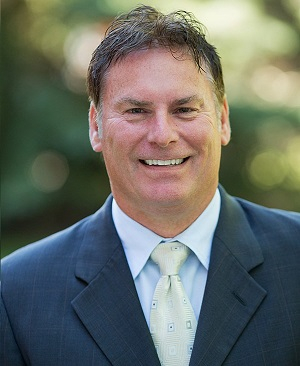
We collect basic website visitor information on this website and store it in cookies. We also utilize Google Analytics to track page view information to assist us in improving our website.

The Trudeau government's decision to increase capital gains taxes, as outlined in the 2024 federal budget, has drawn significant criticism and concern over its potential negative impact on Canada's economic growth and investment climate. The move entails raising the inclusion rate for capital gains from 50% to 66.6% for businesses, trusts, and individuals with capital gains exceeding $250,000. One major issue highlighted is the "lock-in" effect caused by taxing gains only upon asset sale. This means investors delay selling assets, anticipating a reversal of tax policies under future governments. Consequently, the Trudeau government's revenue projections from the tax hike might be overly optimistic.
Moreover, higher capital gains taxes discourage investment and innovation, impacting economic growth negatively. Canada's GDP per person growth is among the lowest in the OECD, and business investment has declined significantly. Critics argue that raising capital taxes exacerbates these challenges. Despite the government's focus on taxing the wealthy, the broader impacts on economic growth affect all Canadians, lowering incomes and living standards. Previous governments recognized the negative impact of capital gains taxes and took steps to reduce them, understanding the importance of fostering a robust investment climate. In summary, the increased capital gains tax is seen as counterproductive to Canada's economic recovery and growth. Critics argue that it discourages investment, innovation, and economic competitiveness while contributing to a deteriorating fiscal outlook.
David Rosenberg, Founder of Rosenberg Research & author of the daily economic report sharply criticizes Canada's 2024 budget for its excessive spending, projecting a $53 billion increase over five years compared to the Fall Economic Statement 6 months prior. He highlights concerns about persistent fiscal slippage under Prime Minister Justin Trudeau's leadership, compounded by tax hikes that hinder business competitiveness. Rosenberg warns that the budget's structural deficits will lead to escalating public debt charges, exceeding $57 billion by 2026. The budget's expansion of program spending to 16% of GDP and lack of fiscal restraint raise further alarms. He argues against increased capital gains taxes, which he believes will discourage investment. Overall, Rosenberg predicts negative economic impacts and deems the budget a failure.
Former Liberal finance minister Bill Morneau expressed significant concern over the proposed increase in the inclusion rate on capital gains exceeding $250,000 in Finance Minister Chrystia Freeland's recent budget. Morneau, speaking at a webcast hosted by KPMG to react to the budget, described the move as "very troubling for many investors." He emphasized that during his tenure as finance minister, any notion of heightening capital gains taxes was staunchly opposed due to its potential negative impact on economic growth and investment.
Morneau stressed that the resistance against such tax increases was driven by a clear understanding of their chilling effect on economic expansion. He firmly believes that the proposed changes will hinder Canada's long-term goal of achieving robust economic growth through productive investment. This criticism from Morneau, a former member of the Liberal government, underscores the concerns within the business community regarding the budget's approach to capital gains taxation.
Over the last couple of days we've received many calls from concerned investors regarding realization of capital gains on inherited properties and estate sales. This new tax policy has created additional stress to investors and begs the question what happens next?
We are currently working with our clients to help them navigate through this new tax policy and plan for the future ahead.
If you have questions or concerns about your particular situation, please reach out to the team.
To read more about the 2024 Federal Budget, we recommend the iA Private Wealth Research Insight:
Sources:
Opinion: Higher capital gains taxes won’t work as claimed, but will harm the economy - The Globe and Mail
(April 16, 2024) - The Globe and Mail
David Rosenberg: The budget deserves a failing grade and will make the fight against inflation even harder - The Globe and Mail
April 18, 2024 - The Globe and Mail
____________________________
So what can we do-- and what matters about what we do?
Our job is to find good companies and good fund managers in which to invest our clients' assets. We do this by:
Warren Buffett says he spends most of his time sitting in a chair reading. It seems to have worked out pretty well as a strategy. We are also voracious consumers of information, and-- for the most part-- it has worked out pretty well for our clients too.
One way of knowing if we are doing our job well, is to look at the performance of the companies in our portfolios. We should surely not be looking only at the performance of the stock prices, which, over the short term, have an element of randomness and volatility caused by any number of things.
What matters-- and what we should be looking at-- is the actual revenue and earnings of each company and the prospects for increased revenues going forward. We believe-- and history has shown-- that companies that grow their earnings increase in value and, that over time, that value shows up in the stock price.
The essence of our job?
LET’S TALK ABOUT FEES

Lately, there seems to be a lot of noise generated by the banks and online trading platforms about fees. In speaking with our clients, we have discovered that there a lot of misconceptions about the percentage and different types of fees. In some cases, clients have been misled by online trading platforms and local bank branches into believing that they are much lower-- or have no fees at all. And of course, the biggest issue is always what’s not discussed – the value of advice. It has been documented, and in the news,that the banks brokerage firms have taken in mutual fund trailer fees to compensate them on advice they did not provide.
Its important to compare apples to apples.
Did you know that there are several different types of account management fees?
1. the advisory fee that is paid for the management of your account (in this case Frost Wealth Management) and on non-registered accounts, that fee is tax deductible
2. the product cost for the management of the mutual fund that you are invested in. This is often referred to as MER (management expense ratio). Lower fees are paid on ETFs (Exchange Traded Funds) and there are no product costs associated with stocks.
As iA Securities is a dealer member of IIROC (Investment Industry Regulatory Organization of Canada), Frost Wealth Management (FWM) adheres to IIROC regulations. Most of our client accounts are feebased, which means that we charge a flat fee of 1% to 1.5% depending of the size and complexity of your portfolio.
Your advisory fee is clearly shown on the fee-based agreement that you signed with your account opening documents. It is clearly visible on the statements that you receive from HollisWealth (soon to be iA Private Wealth) and on the recap sent to you in January. We also post the percentage and an estimate of your annual fees on page 5 of your meeting agenda at every review. As your portfolio grows, we endeavour to lower your Frost Wealth Management advisory fee. If you are concerned about fees, please bring it up at your review or book a time to discuss. Complete transparency is a cornerstone of how we do business. We appreciate an opportunity to discuss how we add value. Did you know that some advisors charge substantial fees for a financial plan? At FWM, financial plans are included in your fee.
Many non-brokerage financial institutions use A class funds, which bundle their management fees and product costs together. The fee is included in the fund’s daily pricing, which does not provide transparency. As a result, some investors are led to believe that there are no management fees.
The MER can vary greatly, depending the type of product that you are invested in. Don’t be afraid to ask about the MER and always read the prospectus to make sure that you understand the fee.
Having said all of that, selecting a product or advisor based on the lowest fee is not always the best option. Like anything in life, sometimes it is more prudent to pay more for better performance, better service, and most importantly, better advice. Bad investment decisions can be far more costly than fees.
If you are interested in finding out more about fees, we recommend a few articles from MoneySense:
Opinion: Simple steps would help investors make more informed decisions
How much should you pay in investment fees?
Thank you for entrusting the Frost Wealth Management Team with your hard-earned savings. We appreciate the confidence that you have shown in us and are grateful to our clients for referring family and friends.
We work hard every day to earn your trust and look forward working with you in 2021.

